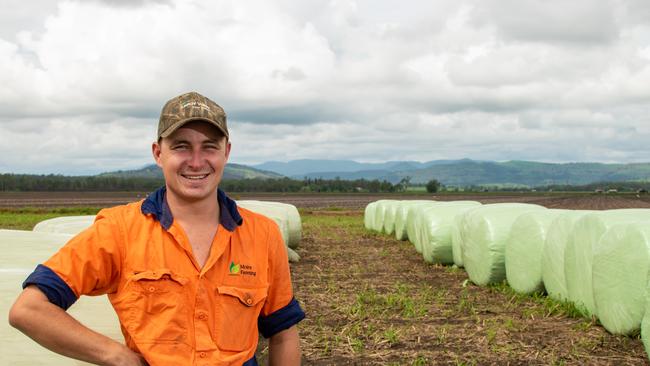WHY WE NEED IT: Young farmer’s push for Wivenhoe pipeline
IT’S a plan that will not only droughtproof the Lockyer Valley, but give young farmers a chance to expand the salad bowl’s production.

Gatton
Don't miss out on the headlines from Gatton. Followed categories will be added to My News.
SITTING under a tree watching farm workers as a three year old, it's fair to say Mitch Brimblecombe was destined for farming.
With a rich history of farming on both sides of his family, the fifth-generation vegetable grower has taken to life on the land.
His mum, Melinda Brimblecombe, said her son would sit under a tree and observe what was going on.
"The workers knew where he was," she said.
Mitch's passion for agriculture lead him to Africa, following in his father's footsteps on a project educating a rural community about farming, and improving its practices.
He followed that with two years under the Qualischefski family at Qualipac, before taking over the family farm at Forest Hill.
Today, the 22-year-old manages Moira Farmers in Forest Hill, a 600 acre property, predominantly used to grow vegetables.
But the work doesn't stop there.
Two years ago, the family took on his mum's 110-year-old dairy farm at Kalbar, converting it into fully operational vegetable production.
The additional farm meant vegetable production was able to continue despite the Lockyer Valley's tough drought conditions.
Down days are few and far in between but producing high-yielding and top-quality crops are a perk.

"I would say I like the lifestyle; I think I like it. You're never home but that's all right," Mitch said.
"I couldn't see myself in an office, I like being outdoors."
However, there's an exciting possibility in the Lockyer Valley's agricultural industry that could help take Mitch, and young farmers alike, to a new level.
The Wivenhoe Dam pipeline project, which is aiming to deliver 50,000 megalitres of water into the Lockyer Valley, would allow year-round production at the Brimblecombe's Forest Hill farm - a farm which has only produced hay in recent years.
"As soon as it's here, we will be using it," Mitch said.
"At the moment, there's a lot of growers concerned about the Lockyer, and they're farming elsewhere - like what we've done at Kalbar - because of the water security."
If the Brimblecombe's were able to secure the 1000ML on their expression of interest, it would mean improved farming opportunities in the Lockyer, for young farmers like himself
We're in a good position because we've got a lot of acres, but not enough water," he said.
"Having extra water might help sustain the current water systems and help them last a bit longer.
"There's a lot of positives - it's hard to see any negatives in it."


